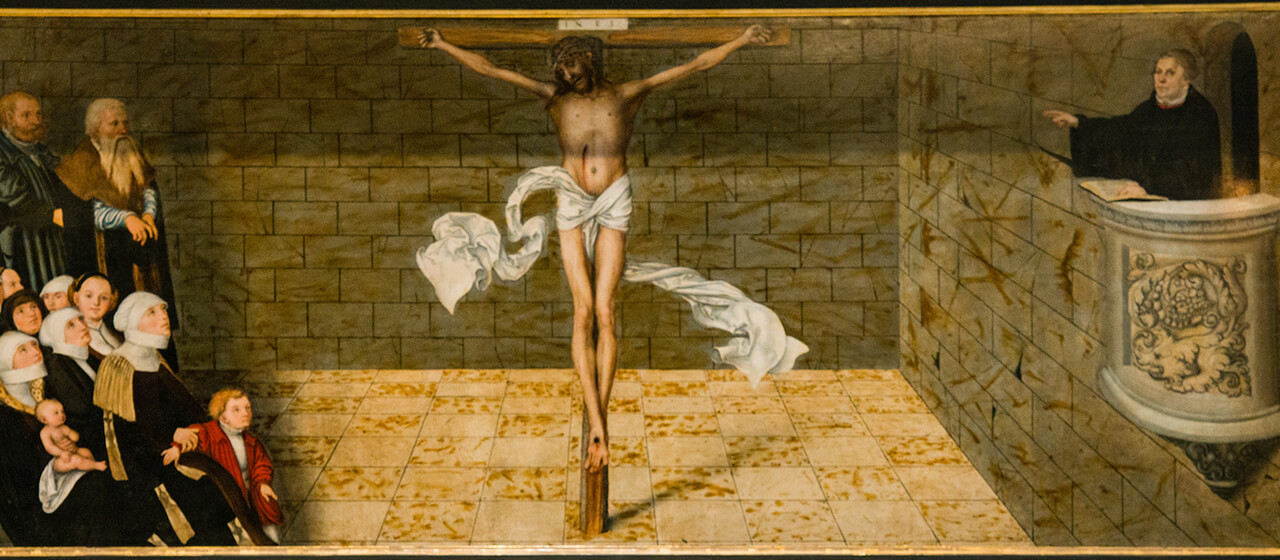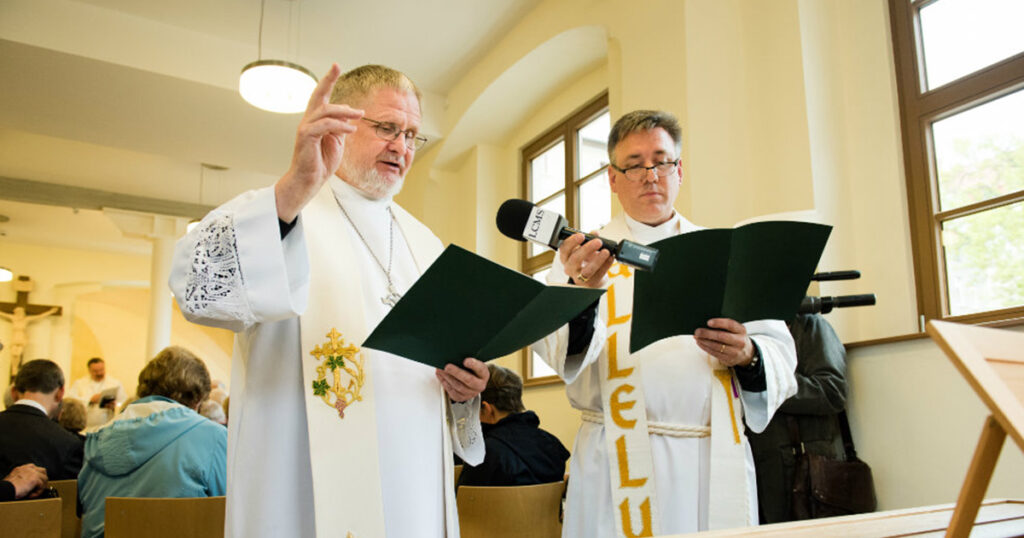
by John Preus
What’s at stake in the 500th year of the Lutheran Reformation? The same thing as always: The Gospel. It’s attacked everywhere. But if we lose Christ, we lose everything. That’s why we risk everything to defend the doctrine of justification by grace alone through faith in Christ alone.
How is this battle fought? On what front do we find the false doctrine of works-righteousness seeking to replace the doctrine of salvation freely offered in the obedience of Christ? Where does this error first begin to creep into the Christian mind and congregation?
Long before the doctrine of justification was officially condemned by the pope in the 16th century, and even before it practically ceased to be preached centuries earlier, the foundation of all truth had already been undermined. Scripture was no longer taught to be clear. Popes and councils had to determine its meaning. Christians began to look to philosophers and academics in order to learn what in the world the Bible taught. Behind all the political carefulness of retaining the status quo of scholarship and authority was a deafening agnosticism of what God’s word actually meant.
Luther made his discovery of the Gospel by freeing the plain meaning of the Bible from those who claimed the Bible was unclear without committees and popes adding something to it. Luther, by the Holy Spirit, was able to learn the Gospel and preach it boldly by refusing to let God’s Word be treated as up for interpretation by those who assume the authority to do so. He learned the Gospel by first securing his footing on the Bible.
The article upon which the Church stands or falls is the doctrine of justification. It is the chief article of Christian doctrine. For a Christian to imagine that he can stand on the article of justification while not also standing on the sure and clear Word of God is for him to sink into the mud of worldly confusion and pride until the Gospel becomes something other than what the Bible says it is.
Popes and councils, being composed of sinful human beings like ourselves, can (and do) err, as we all do in our earthly lives. God cannot. God’s Word must therefore be known to be clear, lest we depend on something else. The Gospel is necessarily at stake. The Holy Spirit is no skeptic. He makes assertions. His assertions do not always sit well with our sinful flesh. But God speaks precisely in order that our sinful flesh might be crucified and give way to the assenting confidence of the new man who delights in the clarity of truth.
God has spoken. And we treasure His Word as our great heritage. We learn to know Him as our Father through the grace of our Lord Jesus. The Holy Spirit enlightens us by the words of the Bible and unites us together in no other way. If what He says ever seems unclear, this is our fault and reason for us to penitently implore Him for understanding even as we seek to maintain the unity of the Spirit in the bond of peace. What we must not do, since both history and Christian piety teach us not to, is appeal to human authority to settle our disagreements. Rather than cede authority to any human court or committee, we must commend ourselves to our mutual submission to God’s clear word until we are able to confess together with conviction that we have been taught by God.
The Rev. John Preus is pastor of Trinity Lutheran Church, Clinton, Iowa.





Such an encouragement in dark times. Thank you.